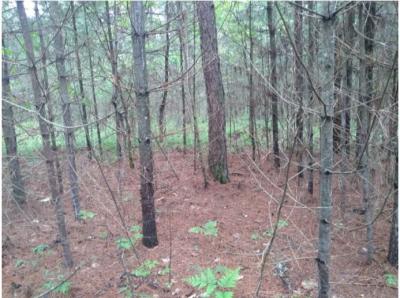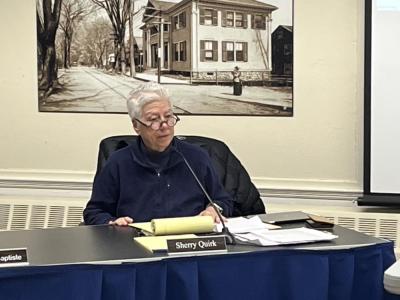Solar court rulings challenge Conservation Commission
The Conservation Commission is facing the heat on solar, as recent decisions handed down by the Plymouth County Superior Court challenge the Commission’s approval and denial of two different solar projects.
On Wednesday, Jan. 11, Judge Elaine Buckley ruled that Wareham residents Wendy O’Brien and Matthew Buckingham could move forward with a lawsuit alleging that the Conservation Commission unlawfully allowed Borrego Solar and the A.D. Makepeace Company to build a solar project at 140 Tihonet Road.
A press release from the Community Land and Water Coalition, an environmentalist group which has frequently opposed solar projects in Wareham and throughout Massachusetts, celebrated the decision.
According to court documents, O’Brien and Buckingham alleged that the Conservation Commission ignored portions of the Wareham Wetland Bylaw.
On May 27, 2022, Borrego moved to dismiss the lawsuit, saying that the solar project would not harm the wetlands.
Buckley dismissed three of the four counts brought by the plaintiffs against the defendants. The first count, alleging that the Conservation Commission’s decision to approve the project was “based on errors of law,” was upheld.
“The Court recognizes the right of the landowners to pursue this action because they have interests different from the general public,” said Planning Board Member Sherry Quirk. “Each of the owners lives in a subdivision with rights to access Tihonet Road and land around it. They have described the activities they have pursued over the years that are not available to the public.”
According the press release, Buckley found that the 140 Tihonet Road project could cause “harm to the residents’ interest in clean water, preventing pollution and flooding, and protecting fisheries... wildlife habitat and the residents’ recreational use of Tihonet Pond.”
“What the landowners need to do now is prove all of their allegations,” Quirk said. “That is, they need to offer evidence from the record that the harms they have described are true. To survive a motion to dismiss, the judge will view all of the facts in the light most favorable to the non-moving party.”
In a separate decision handed down on Tuesday, Jan. 3, Justice Daniel J. O’Shea overruled the Conservation Commission’s September 2021 denial of a solar project by Utah-based company BE RE LLC. The project would have been built over a cranberry bog off North Carver Road.
BE RE LLC sued the Conservation Commission over its denial in March 2022.
O’Shea ruled that the Conservation Commission had no evidence to support its claims that the project would significantly damage the groundwater, soil, wildlife and wetlands on site.
“We hope that the judge’s strongly-worded opinion and annulment of the underlying denial will avoid what we view as unnecessary litigation for other projects in the future,” said Adam Schumaker, manager of BE RE’s Massachusetts branch.
The company’s complaint argued that the denial was “arbitrary, capricious… and in excess of the Commission’s authority.”
Justice O’Shea agreed, quoting then-Conservation Administrator David Pichette as saying that the town’s bylaws “could be arbitrary” at an Aug. 18, 2021 Conservation Commission meeting.
At that same meeting, Pichette said that, according to town bylaw, the Conservation Commission does not have to follow “performance standards” when deciding whether a project is a threat to the wetlands.
At the time of the denial, BE RE was working with Brett Meredith, owner of Rocky Maple Bogs, to install the solar field. Meredith said that the project was crucial to keeping his business afloat.
“We look forward to the construction of this project which will provide great benefits to the cranberry grower hosting the project, the towns of Wareham and Carver and the environment through the generation of clean solar energy and ongoing responsible agricultural management of the existing cranberry bogs,” Schumaker said. “Dual-use projects are a great way to maximize the use of already-distributed agricultural land in a manner that supports the local agricultural community and the broader environmental goals of the Commonwealth.”
The Planning Boards of both Wareham and Carver had already approved the project, along with the Carver Conservation Commission.
The Commission denied the project because, according to Pichette, it would have been built in the 50-foot “no activity zone” that buffers protected wetlands.
Pichette also said that town bylaws require projects planning to build near wetlands to examine other possible locations as well.
O’Shea ruled that Pichette had misinterpreted the bylaw.
“Bylaw does not require an applicant to consider other sites or other towns as part of its proposal,” O’Shea wrote in his decision.
O’Shea also wrote that the Conservation Commission came to a “faulty conclusion” when it argued that the entire project would impact protected wetlands. In reality, only 1,850 square feet of the 6,200-square foot project came near wetlands.
“There is no basis in the Bylaw or the facts presented to support the Conservation Commission’s expansive interpretation concerning the impact [on wetlands],” he wrote.
One of the Conservation Commission’s biggest arguments against the project was that it would intrude upon nature. Since the project would be built on land that was already farmed and developed, O’Shea considered this argument invalid.
The Conservation Commission further claimed that the solar panels would increase soil and groundwater temperatures. O’Shea ruled that these claims were “wholly lacking in evidentiary support.”
He found no evidence that a security fence around the solar panels would harm wildlife, either.
O’Shea pointed out that the cranberry bog already had fences built to keep wildlife out.
Conservation Commission Chair Sandra Slavin said she was “disappointed” by the BE RE decision, but declined to comment on any ongoing litigation.














